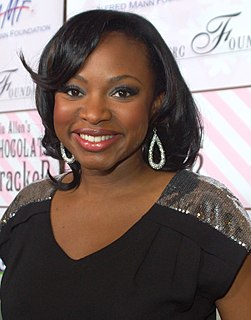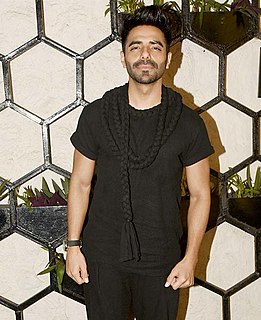A Quote by Naturi Naughton
From film to film, I realize my strengths and my weakness, and I realize how much better I get. I learn the lingo, I ask questions and I'm on set trying to figure out which shots they're going to use. For me, it's exploring the art. It's not just making a movie.
Related Quotes
I won't call my work entertainment. It's exploring. It's asking questions of people, constantly. 'How much do you feel? How much do you know? Are you aware of this? Can you cope with this?' A good movie will ask you questions you don't already know the answers to. Why would I want to make a film about something I already understand?
There's a point in everyone's career where they're not going to be playing as well as they should be. You just have to keep you confidence and not hang your head and realize that you're going to figure it out and that you're going to get better and that you're going to learn. Learn from all your mistakes.
You try to do as much as you can on set because practical looks cool and practical looks great. Until you get to a point where the reality is you look at it - and I went through this in my last movie which was a war film, which my brother fought in Iraq and I did a ton of research and as much as I could made it documentary-like - and then at some point on set, the reality is somebody says to you, "You know, you can use a real squib and you can have three hours of clean up and you can lose five shots or we can do that blood explosion in post and you can get those five extra shots."
You go to the cinema and you realize you're watching the third act. There is no first or second act. There is this massive film-making where you spend this incredible amount of money and play right to the demographic. You can tell how much money the film is going to make by how it does on the first weekend. The whole culture is in the crap house. It's not just true in the movies, it's also true in the theater.
Well, the experience for me making a film is the most profound one. I really don’t have any business watching the movie so much. Maybe I could watch it for entertainment purposes, but you have so little input and control of the final product once you’re done that I feel like I just would rather leave it alone. It kind of leaves me in a place where every film I do, I’m kind of having to reinvent and figure out how to start again fresh, and hopefully not repeat myself.
Now I realize that I have to let everyone take what they have to take from the film. No matter what I think about the film, it becomes a little irrelevant. I think I would say that the film is trying to show us that - and I spoke about that earlier - we have to let the teachers invest in their own classroom. There's no use in trying to control everything. Education is fundamental.
That's such a big part of film scoring that people don't realize. There's a portion of film scoring that's writing the music, but a lot of it is how do you get along with the guy you're working with, how do you interpret what he wants? It's so subjective, you know? Your version of sad is probably different than my version of sad. It's my job to figure out what your vision of sad looks like.
To me, a revolutionary film is not a film about a revolution. It has a lot more to do with the art form. It's a film that is revolting against the old established language of cinema that had been brainwashing the people for decades. It is a film that is trying to find ways to use sound and image differently.




































